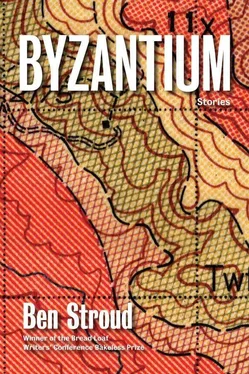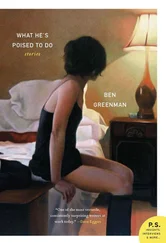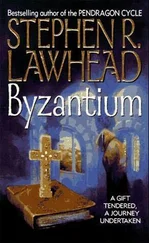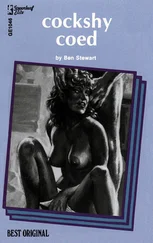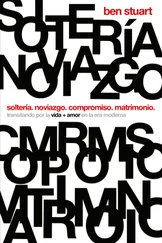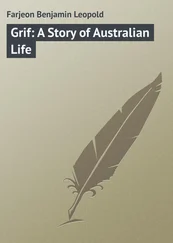Twenty minutes later they came to a field scattered with soldiers. An army lieutenant and two government clerks stood at the back of the field, beside a grove of bushes, smoking, and behind them an orderly was brewing coffee. When Burke got out of the hack he made for them. As he approached, one of the clerks, a short man with gray sideburns and the flat, bland face of a sheep, stepped forward.
“You have no business here,” he said.
“I might,” Burke answered, and offered the man his card. “I’m in the employ of Don Hernán Vargas y Lombillo.”
The man broke into a grin and thumped the card with his forefinger. “I know of you,” he said. “You’re called the negrito. My name is Galván. You are most welcome.”
Burke stifled a wince. He was not fond of the appellation the city had given him. “Thank you. I only want to see the body.”
“Ah, that is a problem,” Galván said, looking across the field, where soldiers and policemen in brown holland uniforms were beating the grass with sticks. “We haven’t yet found the body. All we have is the head.”
“Only the head,” Burke said, then asked, “may I look?”
“Of course.” Galván spread his arm. “It’s just over there.” He pointed to the grove. “Forgive me if I don’t join you. I’ve had my fill.”
Burke thanked the man, then went over to the grove, parted the branches, and saw the head. His heart sank. The head belonged to a dark-skinned man with a scar running from his forehead to his cheek. He’d not admitted it to himself, but he’d hoped to find Marcita here and so be free of his burden. He thought to leave, but then decided to take a closer look. As he knelt and examined the head, all the noises behind him — the lieutenant’s guffaw, the policemen’s and soldiers’ complaints, the sush of their sticks against the grass — fell away. The head lay faceup, the skin ragged with gore along the neck where it had been severed. But no blood had drained onto the soil, a fact Burke found curious. The head must have been severed at some other place. He looked at the eyes, felt a chill when their gaze seemed to catch him, and wondered why the body was not here as well. He stood and went over to Galván.
“What’s near here?” he asked.
“Only the railroad tracks, the woods, the field, and those factories.”
Burke looked around the area. The tracks divided the field from the woods, and the factories — three of them, a nail factory, a cigarette factory, a snuff mill — stood on the field’s western end. Any evidence of the killer’s path had been destroyed by the soldiers beating through the field.
He had no business with the murder, but he found himself interested. “Would you mind sending me word once the body is found?”
“It’d be a pleasure,” Galván answered.
WHEN BURKE RETURNED TO HIS ROOMS, he found a note under his door. Fernandita was out, marketing for his supper, and the note was from Marcita’s lover. He’d come by, hoping to speak.
After leaving his card at the lover’s room, Burke had both worried and hoped that the man would flee, if he hadn’t already, that he would take Marcita from her hiding place and disappear. But instead the lover had come seeking him out? Burke stuffed the note in his pocket and turned around, going back out into the courtyard and through the streets toward the man’s dismal building.
When Burke arrived and knocked on the lover’s door, the man answered and beckoned him inside. He was a mulatto, at least two shades lighter than Burke and twenty years his senior. His cheeks and nose were covered with freckles, and he had a high, wide brow. The flesh beneath his eyes was puffed, the eyes themselves red.
“Please, sit,” the lover said, clearing a crate filled with tins from a chair. Burke did so and looked about the cramped room. Its walls were stained a pale yellow, and aside from another chair the only other piece of furniture was a couch whose crimson velvet had been worn to bare pink patches. He was about to ask the lover about Marcita when the man, unable to contain himself, shot out, “Tell me where she is. I beg you. Tell me what you know. Tell me anything.”
Burke, alarmed, straightened in his chair. “I was hoping,” he said, “you’d be able to do that for me.”
“But I thought she’d sent you!” Enrique said, then pleaded, “why torture me with your note?”
“I’m trying to find her,” Burke said.
Enrique was silent a moment. Then something seemed to catch. “Why?” he asked. A nervousness entered his voice. “Who hired you? Was it Don Hernán?”
“I’m under his employ, but he didn’t—”
“He knows?” At that he went to the window. A gauzy sheet hung there, luffing in the wind. “Oh, no no no.”
“I can assure you Don Hernán knows nothing,” Burke said, “and I can further assure you that he will learn nothing. You are safe. I’m charged only to find Marcita. That I will do, and nothing else.”
Enrique pulled back the curtain and looked out. Then he stepped back toward Burke. “I love her,” he said. “When she is free, we’re going to move to Santo Domingo, away from the don, away from this island. I’ve been saving money to help her. See?” He offered Burke one of the tins in the crate. A crowned cow stared out from its label, which touted the contents as superior butter. “I sell this, for my living, for her. I was waiting for her last Tuesday. We were going to have an hour. But then she didn’t show. I worried. I thought the don had found out. Then I saw the notices the don put in the paper, and I thought maybe she had run.”
Burke’s mind began to leap with what Enrique had told him. “You were waiting for her on Tuesday?” he asked.
“Yes, yes,” Enrique said.
“Where, exactly?”
“At the corner of O’Reilly and Compostela.”
“And you kept a hard watch for her?”
“I always do.”
Burke rose, relief breaking through him like morning sun. She wasn’t a runaway — she had truly disappeared. “Thank you,” he said. Then, without another word, he went to the door.
“Is that all?” Enrique asked, still standing by the window and staring after Burke.
“It is enough.”
BURKE WALKED DIRECTLY to the Calle O’Reilly. There, halfway between the Habana and Compostela intersections, he planted himself in the center of the street. He looked eastward, toward the intersection where Miércoles and Domingo had waited, O’Reilly and Habana. Then he pivoted and looked westward, toward the intersection where Enrique had kept a sharp lookout, O’Reilly and Compostela. Between these two lookouts, one at either entrance to the block, Marcita had vanished.
On the left side of the street were the oyster shop, the bookseller’s, and the tobacco shop he’d seen before, and farther on a linen shop and a silversmith’s. On the right stood a tea shop, a music shop, a large shop selling glassware, and a perfumery. There was nothing strange about the block. The shops were all elegant, glass-fronted establishments that catered to the city’s gentry. They had preposterous names like The Empress Eugénie (the perfumery) and The Bower of Arachne (the linen shop) written in gold letters above their doors. Burke walked up and down before them, observing everything around him, looking again and again into the same shopwindows and at the crowds moving past, the gentlemen, the vendors, the slaves. He even knelt and examined the street itself, paved in smoothed cobblestones. But after two hours’ investigation, Burke had found nothing. Returned to the Calle del Sol, he sat at his desk to think, and when Fernandita brought in his supper he refused the plate of French sausages and rice with a distracted wave of his hand.
“You must ease yourself about hunting that girl,” Fernandita said. “Somebody’s going to catch her and it might as well be you. We have debts to pay.”
Читать дальше
